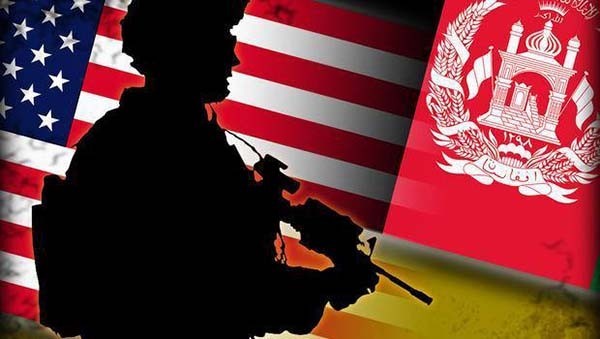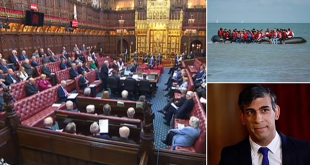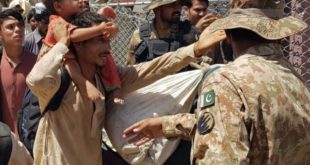Compiled by the Afghan Institute for Strategic Studies
As the new US administration is trying to set its policy for countering the deteriorating situation in Afghanistan , on Thursday 20 April 2017, the Afghan Institute for Strategic Studies (AISS) held its Second Round of National Dialogue on the topic of “The relationship between Afghanistan and the United States of America”. A number of experts in international relations, government officials, members of parliament, civil society members, the media and academics attended the event at the Office of Afghan Institute of Strategic Studies of Afghanistan. The conference focused on Afghanistan and the United States of America relations in two working sessions; outlining the relations between the two countries and identifying problems and opportunities.
Below are a number of recommendations that were given during the meeting and also in the follow up discussions and consultations.
Changing the recent/current “not losing” strategy to a “winning” one
To change the current “not losing” strategy to a “winning” one, there is a need to articulate and execute a new strategy based on four “D” pillars: Deterrence, Diplomacy, Democracy and Development. Both the US and Afghanistan are lucky to have a number of experienced and committed friends in the new US Administration whose perspective and wisdom will ensure wise and efficient implementation of a comprehensive strategy.
Deterrence/Defense: In Afghanistan, there is a war, which has only two end states: defeat or victory. Peace is the logical consequence of victory. Therefore, the US needs to assure its principal ally (Afghans) and adversaries (Pakistan/Taliban nexus+ regional spoilers) of its determination to win. Of course, winning does not mean physical elimination of the adversaries, but to prevail politically and strategically e.g., forcing the adversaries to submit to its will. The military pillar of a comprehensive strategy should focus on:
Strengthening the capacity of the Afghan National Security Forces;
Institutionalizing the Security and Defense Partnership between Afghanistan and the US/NATO in the context of the Bilateral Security Agreement (BSA) and the NATO-Afghanistan Enduring Partnership;
Addressing the corruption within the Afghan National Security Forces and foreign contractors; while ensuring not to use fighting corruption as a pretext to pursue political and ethnic agendas;
Reinforcing an anti-Taliban narrative among all Afghans, particularly the clerics and the Pashtuns who have been among main victims of Taliban’s terror campaign;
Proscribing the Taliban as a terrorist organization by the US State Department;
Putting in place effective and intelligence-based measures to purge Taliban sympathizers from the state institutions and public discourse;
Reviewing structure, doctrines and policies of Afghan defense and security agencies to determine their suitability and compatibility with Afghanistan’s dynamic security needs and war theatre;
Creating legitimate and relevant opportunities for regional countries to contribute to strengthening the capacity of the Afghan national security forces;
Dismantling the financial sources of terrorists, particularly the nexus of drugs, organized crimes and private donation from the Gulf region and
Putting an end to Pakistan’s military establishment’s use of terrorism as a tool of policy and corporate interests.
Diplomacy: US/Afghan’s diplomacy should be aligned with their military/deterrence objectives. During the Obama and Karzai administrations, the two were disconnected. While the US and Afghan militaries were fighting with the Taliban, Kabul-Washington’s diplomacy was inadvertently providing political space and legitimacy for the Taliban and their key external sponsor, Pakistan. The Diplomatic pillar of a comprehensive Strategy should include:
) Encouraging a more meaningful and mission-oriented burden-sharing by NATO members for the Afghanistan mission;
Working more collaboratively for creating an Islamic & regional consensus on radicalization & discourage selective policies towards terrorists;
Partnering with India as US’ natural regional/global ally and Afghanistan’s main regional/historical strategic partner for stabilization and development of Afghanistan in the context of the stalled Afghanistan-India-US Trilateral Cooperation;
Engaging with legitimate regional stakeholders (Iran, Russia, China, and Central Asian States) to channel their legitimate concerns into effective collaboration on Afghanistan;
Discouraging emergence of sectarian proxy war between Iran and Saudi Arabia, particularly along Afghanistan-Iran border areas;
Reviving NATO-Russia cooperation on Afghanistan;
Removing Pakistan as a Non-Major NATO Ally & Initiating measures to designate Pakistan as a “State Sponsor of Terrorism”;
Encouraging more interaction among region’s civil society, media, academia, the clerics, sport-men/women and the private sector;
Encouraging China to assume more responsibility for the stabilization and development of Afghanistan, including meaningful integration of Afghanistan’s into regional connectivity projects and initiatives.
Accelerating work on regional economic projects and initiatives such as TAPI, CASA 1000 and RECCA
Democracy/Politics: Presently, there is a stalled political process and a non-constitutional government (National Unity Government); compounded by growing ethnic polarization and massive immigration, particularly the educated youth. Furthermore, because of massive frauds in the previous elections, there is profound disappointment among Afghan voters about democratic constitutional order. The two Governments have to address both this present crisis in the near future and in the long-term to facilitate a national dialogue on addressing existing shortcomings within Afghanistan’ s political and electoral structure, particularly the debate over Presidential system Versus Parliamentary system. The planned Parliamentary Election is a key test for restoring people’s credibility in democracy and injecting some democratic energy and legitimacy to the current stalled political order. The Political/Democratic pillar of a comprehensive strategy should include:
Implementing the full provisions of the political agreement that paved the way for the creation of the National Unity Government in September 2014 as was guaranteed by the US and the UN;
Appointing a senior US Official to coordinate US’s efforts in ensuring genuine electoral reforms on the eve of the planned parliamentary and presidential elections;
Encouraging national dialogue and consultations on the way forward in reforming Afghanistan’s political and electoral structures;
Moving away from patronage and ethnic/personality-driven politics into modern political party and national/issues-based politics;
Treating fighting corruption as a long-term political and institutional challenge, rather than an Afghan cultural menace;
Moving away from “One-Person”, “Large Bureaucracy” and “Top-down” approaches to “Institutions/rule-based”, “ Governance” and “Big society” politics;
Re-opening US’ consulate generals and political offices in major Afghan cities and increase US diplomats’ interactions with all political constituencies across Afghanistan;
Reinforcing conditions and redlines in any peace negotiations, agreements and settlements;
Empowering judiciary and courts to exercise their constitutional mandate in addressing the country’s multitude of challenges;
Monitoring more closely social media, university students, mosques and local media in order to insulate them from poisonous extremist, ethnic and sectarian propagandas and to empower them with pro-active and alternative narratives and discourses.
Development: Afghanistan needs a genuine national development strategy to address its massive socio-economic challenges as well as to utilize its enormous human, natural and geographic assets. Afghanistan’s socio-economic challenges comprise of stabilization, humanitarian, reconstruction and developmental needs. The nature of the Afghan conflict requires a comprehensive strategy, which is also referred to as “nation/state-building”. The Socio-Economic pillar of this strategy should focus on:
Developing an effective long-term National Development Strategy, based on donors’ strategic partnership; private sector-led investment; an efficient and accountable Afghan government and working with the realities of Afghanistan;
Integrating war economy with national economy by utilizing Afghan workers and firms in providing the provisions of Afghan and coalition security forces;
Elevating “job-creation” as a cross-cutting strategic priority in all sectors and implementing programs such as public infrastructures; public work corps;
Rethinking Afghanistan’s counter-narcotic strategy and reality and explore ways to link it with the National Economy;
Creating collaborative economic projects based on the principle of “Public Private Partnership”, particularly in energy, infrastructure and agriculture sectors;
Protecting vulnerable and marginalized communities and individuals by increase in social welfare spending and their empowerment, alongside broadening the Tax Base;
Rightsizing Afghan state bureaucracy, including investing in modern technology and vocational-based education;
Opening regional & global markets for Afghan products and labor force;
Addressing massive waste, duplication and corruption within both Afghan and international firms and practices and
10) Allocating required financial support for the long-term national development of Afghanistan.
 Afghanistan Times
Afghanistan Times




